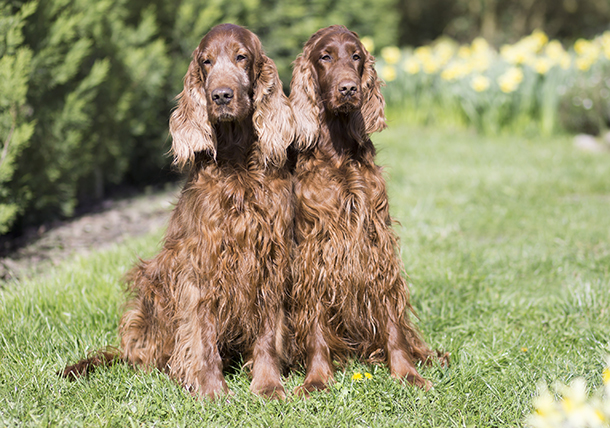Responsible Dog Breeding

The primary reason to breed dogs is to improve the breed. To do a good job, breeders consider multiple factors to ensure the healthiest dogs possible. Sometimes dogs are bred for the wrong reasons, such as wanting to observe a birth, make money or have a puppy related to a dog. Of course, accidental breeding sometimes occurs too.
The Breed Standard
Each recognized dog breed has a breed standard. This is a written set of requirements developed by the national breed club outlining how members of the breed should look and behave. They are all dogs, but the breed standard is why you can distinguish one breed from another. Ethical dog breeders will only breed dogs that fall within their breed standard. Reputable breed registries such as the American Kennel Club (AKC) maintain copies of the breed standards, keep records of purebred dogs and also encourage responsible dog ownership. They have little control over individual actions, and registration is not an indication of the quality of the dog. Dog show wins help a breeder prove the quality of their breeding stock.
Health Plays a Role in Breeding
Even nice-looking purebred dogs may not be breeding candidates. There are health concerns and medical conditions that may be passed on to future generations. Ethical breeders will have their dogs examined regularly, vaccinated and kept free of internal and external parasites. They will ensure their dogs are screened by veterinarians and certified to be free of genetic and infectious diseases before breeding. Besides physical health, a dog’s temperament is important to evaluate because behavior problems such as aggression and anxiety can be hereditary.
Breeding Responsibilities
If responsible breeders know their dogs will contribute to the excellence of their breed in conformity, health and temperament, they will carefully consider any health or temperament problems in the pedigree. Those breeders are willing to search and travel for the ideal breeding stock. They fully understand they will risk some health problems by allowing their dogs to remain intact while being used for breeding. They will educate themselves and follow veterinary advice about canine pregnancy, labor and delivery. They will have money set aside in case the mother dog or puppies need emergency care. They will make sure they are available for any needs of the mother dog or her puppies. They will keep good records. They will carefully screen the buyers and keep and properly socialize the pups until they find good homes. They are willing to serve as a resource to their buyers and follow the pups throughout their lifetime. They are willing to take back any dog they place in a home at any time.
Breeders need to make a lifetime commitment to the dogs they breed and the puppies that result. They put a lot of love, time and money into the research, health checks and the confirmation of excellence of their breeding dogs. It is tough to get quality pups from someone who does not put in the work. It is all in the quest to breed the best of the best, produce healthy puppies and ultimately improve the breed.
Dr. Carol Hillhouse owns two mixed animal practices in the Texas Panhandle: Carson County Veterinary Clinic and High Plains Animal Hospital.


Wow, these people actually believe that the puppy mills care about their dogs and don’t just breed dogs for profit. Sad.